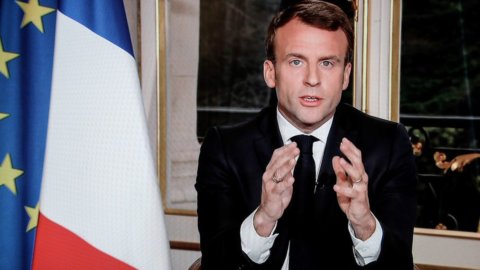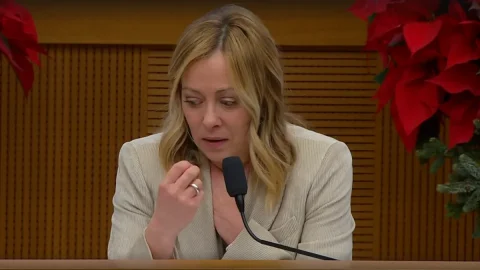No Telecom Italia shareholder can any longer count on a double-digit shareholding. When Telco's "stew" is completed (a transaction that will be concluded by the end of the year), Marco Fossati's Findim will find itself in second place among the strong shareholders of the former incumbent of tcl with a share slightly lower than that of Telefonica (abundant 5% against approximately 8%), unless, in the meantime, some strong hand has not mortgaged the shares of the former Telco shareholders, namely Generali, Intesa and Mediobanca.
These and other considerations are necessary after the last coup de théatre in the Telecom house, welcomed on the Stock Exchange with a sharp drop, around 2,7%, mirroring yesterday's sharp rise, when the share had soared beyond 0,90 .XNUMX euros. Let's try to understand why and, above all, what we can expect from this crazy and turbulent summer.
A) On Wednesday evening, as is known, Telefonica announced the launch of a 750 million bond convertible into shares of the Italian company. This is a value equal to approximately 6% of the ordinary share capital. In this way the participation of the Spanish group through Telco drops from the current 13 to 8%.
B) The decrease in Piazza Affari does not surprise operators: those who have an open position on Telecom, in fact, sell the share and subscribe the bond in order to keep their exposure unchanged, moreover guaranteed by the yield on the bond.
C) Why did Telefonica shrink into Telecom Italia? The answer is unanimous: Madrid had to bow to the requests of the Brazilian Cade (the local authority), which issued a peremptory ultimatum: either Telefonica dropped below 10% in the Italian company that controls Tim Brazil, or it would have had to give up Vivo, the subsidiary in the South American country. Hence the decision to take the step back.
D) And now? The sale, underlines Equita Sim, “was dictated by the need to comply with the provisions of the Brazilian Antitrust. It is therefore a forced sale and not inspired by strategic considerations or financial opportunity". But, given the absence of industrial synergies between Telefonica and Telecom, it doesn't take much to understand that the Madrid-based group is, looking ahead, ready to sell what is now a financial stake with only one strategic value: closely monitoring the decisions on the future of Tim Brazil, now only competitor. The withdrawal, therefore, could take place in a short or medium time, according to a timetable to be agreed with the other former Telco partners. No one wants a messy sale.
E) It is not difficult to imagine that a possible path for the future Telecom passes through the agreement in Carioca land between Tim Brazil and Gvt, the subsidiary of Vivendi, the French group chaired by Vincent Bolloré, Mediobanca's number two shareholder. The wedding in Brazil would give life to a strong company in both fixed and mobile, among other things blessed by the president Djlma Roussef, which aims to reduce the number of competitors.
F) At that point, Telecom could maintain a strategic position on the Brazilian front and take advantage of the recovery atmosphere on the domestic market. As noted in a report by JP Morgan, industrial prospects are improving in Italy for at least two reasons: the reorganization of the market, starting with the probable integration between Wind and 3 and the resurrection of fixed telephony, relaunched by technology, and the expansion of new services.
G) In this context, games unthinkable until recently are opening up for the public company Telecom Italia. On the one hand, the debate on investments in the new network (or on less expensive solutions) in which F2 I the Cdp setssa could play a role. On the other hand, it is clear that Telecom Italia will be involved in the competition between TV media, the Internet and TLC to combine transmission power and content. And so Telefonica's withdrawal from Telecom Italia is not in contradiction with the birth of two "parties": the former incumbent allied with Sky (which aims to have its contents run on Ti Media multiplexes) against the axis in Premium between Mediaset and Telefonica.





